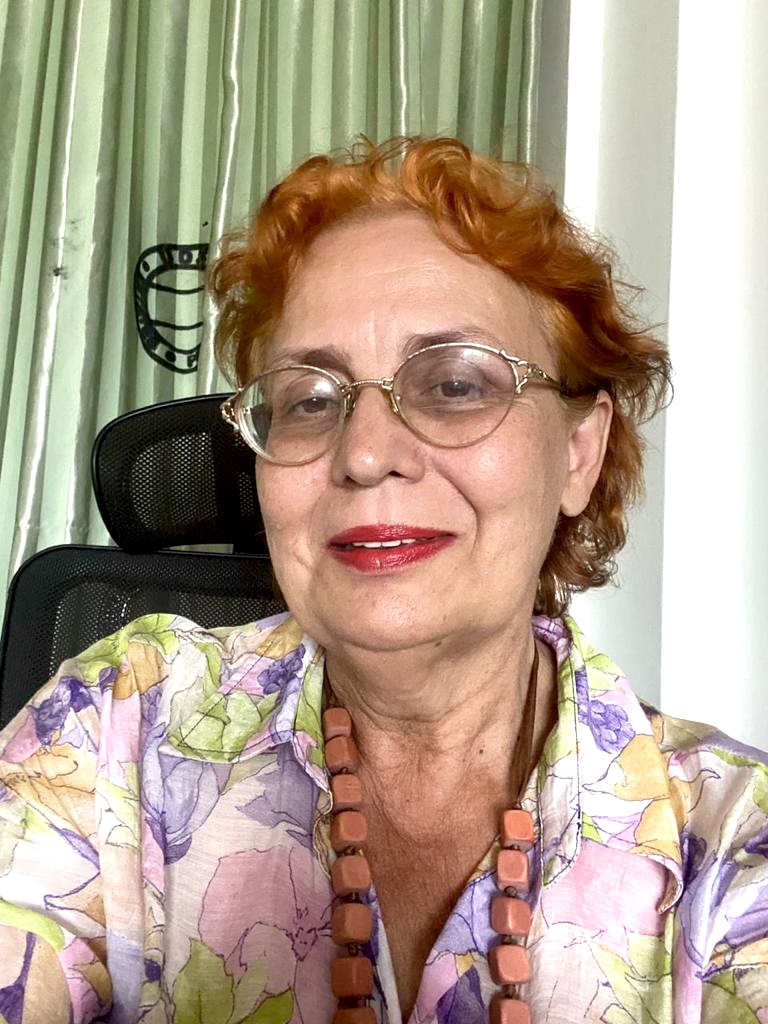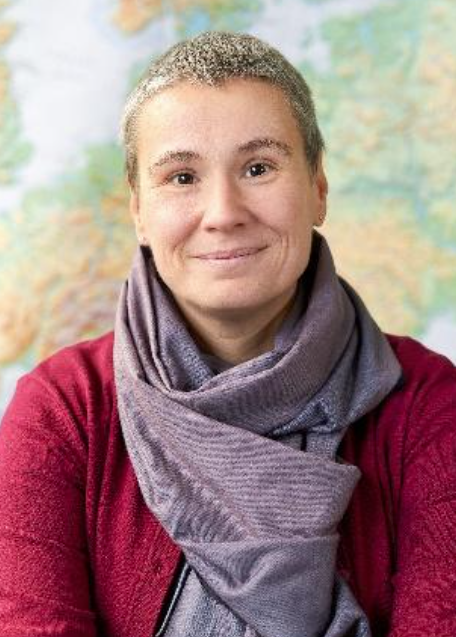Gordana Kranjac-Berisavljevic

Presentation: Digital Solutions for a Just Green Economy Transition in Africa: Addressing intersectionality in a gendered space from the Ghanaian perspective
Ghana is at the forefront of a dynamic digital transformation, integrating technologies across sectors such as finance, renewable energy, and agriculture to transform the food systems. With the introduction of digital technologies for the Green economy, a just transition approach is needed to transform agriculture and the food system towards sustainable pathways. Although digital solutions are increasingly used in various sectors of Ghana’s economy, limited knowledge addresses social justice integrating intersectional issues in gendered space in the Green economy transition. The just transition principles stipulate that a healthy economy and a clean environment can and should co-exist through fair processes and not exacerbate inequalities. Thus, innovative digital solutions in the Green economy transition should not cost workers or community residents their health, environment, jobs, or economic assets. The transition should be done in a way that works for all, i.e. farmers, processors and marginalised in the communities (ex. differently abled, old or very poor) and provide them with the support, safety nets, and social protection required to make necessary adjustments. The paper is premised on the notion that providing digital technologies for agricultural production, particularly among farmers, requires more than mere changes in socio-technological approach. We proposed the need to engage with the root causes of inequalities. We take a social justice lens to identify the current social and political structures that lead to unsustainable transformative systems and discuss alternative ideas.
Gordana Kranjac-Berisavljevic (PhD) is Professor of Agricultural Engineering in the Department of Agricultural Mechanisation and Irrigation Technology (AMI), where she is working since its establishment. She has served as the Head of Department, Vice-Dean of the Faculty of Agriculture, Dean of Students and Director of International Relationships and Advancement (DIRA) and as Deputy Director of WACWISA Center of Excellence in Irrigation, Drainage and Sustainable Agriculture, funded by the World Bank in 2019. She is serving University for Development Studies, Tamale, Ghana in these various capacities since 1995. She is currently teaching about seven (7) different undergraduate and postgraduate courses across three different Schools and Faculties (FOAFCS, Natural Resources and Engineering) and supervises numerous MPhil and PhD thesis. Her research work covers different areas related to wastewater use in agriculture, feasibility and other technical studies for irrigation projects, weather information provision to small-scale farmers using mobile devices, integration of local and technical knowledge, etc. Prof Gordana has been collaborating with many local and international partners, including World Bank, GEF, GiZ, UNU, EU, USAID, DANIDA, NORHED, JICA and universities and research institutions across the African continent, as well as world-wide. She has published articles in referred journals, books, chapters in books, etc.
Biljana Basarin

Presentation: Sensationalism Over Science: Analysing Media Coverage of Extreme Weather Events in Serbia
The focus of media coverage on climate change tends to centre around two main themes: extreme weather events, and significant political events like the Conference of the Parties (COPs). These events capture the public’s attention due to their immediate impact and visibility. In Serbia, according to the survey done by the portal Klima101 in 2021, there is a rising tendency in reporting about climate change and weather events. However, these reports heavily rely on apocalyptic warnings and doom and gloom scenarios. Not much attention is given to communication around credible and verified data and scientific publications about the extreme events. Additionally, more dramatic effect is added to by tabloid media that exegetes the event, and in most of the cases media content often lacks the connection between weather disasters and climate change. On the other hand, Communications regarding climate change are increasingly used to encourage sustainable behaviour.
The way information is framed can significantly alter the impact that they have on the recipient. With this study we aim to show intentionality of the Serbian media towards climate reporting. With low level of credible and reliable scientific explanations in the media, sensationalism and conspiracy theories have taken precedence. For instance, one of the best examples are reporting on the supercell storms and subsequent floods which had catastrophic consequences from Slovenia, Croatia to Serbia. “The worst storm has passed Serbia!”, “METEOROLOGIST ISSUES TERRIBLE WARNING”, “CHAOS Storm sweeps through Serbia”. These are just some of the many headlines from media portals in Serbia. The sensationalism phenomena of headlines in online digital media are not new and it was noted before that the function of the headline is not to provide readers with an understanding of the news content but to entice them to click on the headline (Ifantidou, 2023). In the case of climate information, the sensationalism effect might cause a false understanding of the climate change issues and the psychological wellbeing of the reader. To investigate the hypothesis that media sensationalism in reporting weather events is prevalent, authors collected headlines from Blic, one of Serbia’s most influential daily newspapers. The focus was on keywords related to weather events (e.g., heat waves, temperatures, floods, precipitation). The dataset comprised over 3,500 headlines spanning from 2006 to 2024. Utilizing Natural Language Processing (NLP) techniques, authors conducted sentiment analysis on these headlines. Furthermore, a pre-trained model was applied to assess the dataset for indicators of sensationalism. The next step in the analysis is the comparison of some of the most dramatic headlines with the actual weather events, particularly in the context of past extreme weather events. This comparison is aimed to determine whether the events, which were sensationalistically reported in the newspapers, were genuinely as severe and rare as portrayed.
Dr. Biljana Basarin is Full professor at Chair of Physical Geography within the Department of Geography, Tourism, and Hotel Management, Faculty of Sciences, University of Novi Sad. Main research fields are related to climatology, climate change and natural hazards. She is the coordinator of one twinning H2020project EXtremeClimTwin (GA 952348) and participant on numerous EU funded research projects focusing on climate change. She is co-author of more than 20 papers in international scientific journals with impact factor, co-author of 1 book, co-author of 1 contribution in book chapter, and more than 60 contributions in other journals, conference abstracts or conference proceedings.